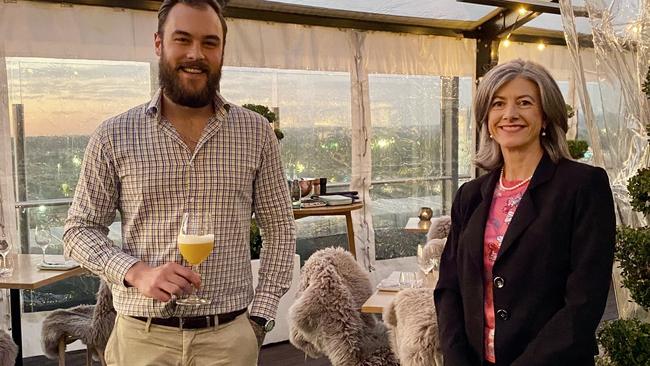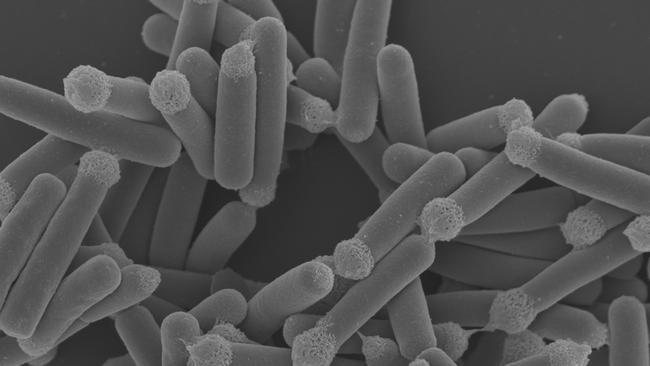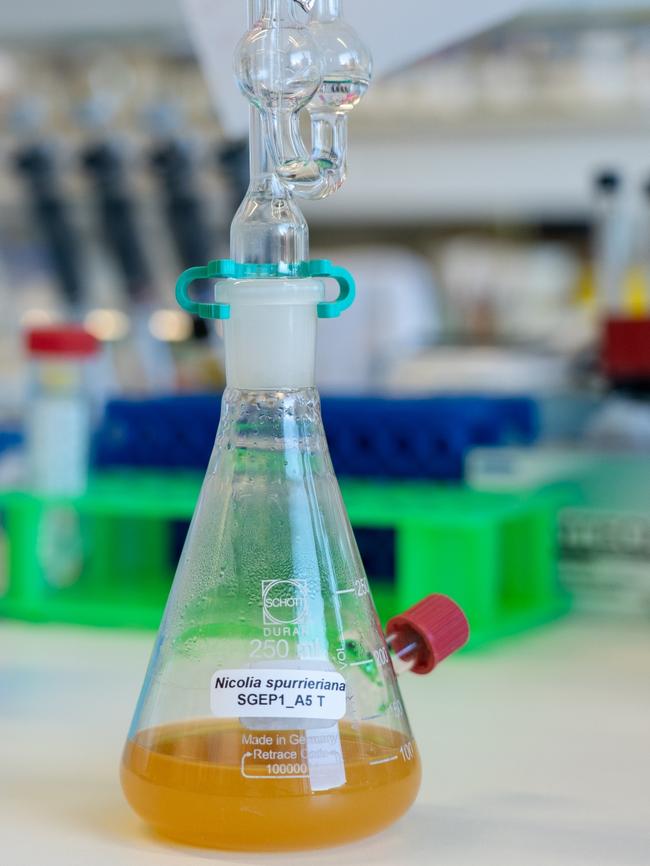New strain of bacteria named after SA Chief Public Health Officer Professor Nicola Spurrier
Nicola Spurrier can lay claim to something only a handful of celebrities have – and has been immortalised in the process.
SA News
Don't miss out on the headlines from SA News. Followed categories will be added to My News.
University of Adelaide researchers have named a new strain of bacteria after the woman who led South Australia through the pandemic as its chief medical officer.
Professor Nicola Spurrier has become immortalised by the newly named “nicolia spurrieriana” – a lactic acid which could be used to ferment wine, sourdough bread and pickled foods.
In doing so, she has joined international celebrities such as Beyonce, David Bowie, Steve Irwin and John Cleese in having new scientific discoveries named after them.
There is the Beyonce horse fly (scaptia beyoncea), Steve Irwin snail (crikey steveirwini), David Bowie huntsman spider (heteropoda davidbowie) and Cleese’s woolly lemur (avahi cleesei).

Prof Spurrier first had a cocktail named after her by Adelaide rooftop bar 2KW, which invented the Nicola Spurrier. Made from gin, apricot and rosemary, it was developed to help guide South Australians “through a dark time”.
Now, University of Adelaide PhD student Scott Oliphant and his colleagues from its School of Agriculture, Food and Wine have honoured Prof Spurrier by announcing the discovery of nicolia spurrieriana in an international microbiological journal.
“We decided to name the new bacteria after Nicola because she led a science-based strategy to manage the pandemic in South Australia to prevent Covid-19 from spreading before vaccines were available,” he said.

“This allowed us to continue our research when many labs around the world were shut.
“We are grateful to Nicola for her leadership during a challenging time for the state during the past two years.”
Prof Spurrier said she was extremely honoured to have a new type of bacteria named after her.
“My father Dr Ross Smith was a clinical microbiologist for the University of Adelaide’s School of Medicine for many years – this would have given him much pleasure if he was still alive,” Prof Spurrier said.


The nicolia spurrieriana bacterium was one of three discovered when Mr Oliphant and other researchers were analysing micro-organisms on stingless bees.
Professor Vladimir Jiranek said it was “very distinct genetically from other types of lactic acid bacteria”.
“It has a much larger genome than its neighbours, as well as the presence of unique genes not shared by other lactic acid bacteria,” he said.
“This means it could very likely contribute to unique characteristics in food fermentation processes, such as in the creation of bread or pickling various foods.
“We will also test its ability to aid in winemaking.”





